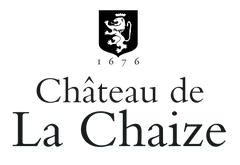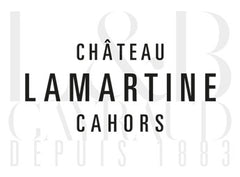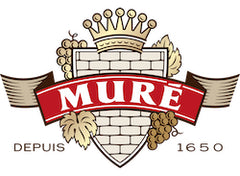7 products
- White Wine
- Chardonnay
- Sustainable, Vegan-Friendly
- Dry
- Medium Bodied
- 750ml
- 12.5% alc./vol
About the Winery
Domaine de Mauperthuis

A family estate created by Marie-Noëlle & Laurent Ternynck, Domaine de Mauperthuis is located in Prehy, near the town of Chablis. Their wines express the terroir of this amazing region and the vineyards are currently undergoing the transition to organic. Domaine de Mauperthuis covers around twenty hectares of vineyards around Chablis. The estate, in the Burgundy appellation, is planted in Chardonnay, Pinot Noir, Sauvignon and César, on land facing south, benefiting from exceptional sunshine.
Press Reviews
Wine Align
91 points (2020) - David Lawrason
This is a quite rich, slightly oxidative style of unoaked chardonnay with pale golden colour and a ripe nose of baked apple. Peach pie, toasty lees and vague nuttiness. It is medium weight, smooth and almost creamy with fine acidity and mineral underpinning. The length is excellent. Tasted June 2022
- Red Wine
- Cinsault, Grenache, Syrah
- Organic, Vegan-Friendly
- Dry
- Full Bodied
- 750ml
- 14.5% alc./vol
About the Winery
Château de Montfaucon

Just across the Rhone river from the beautiful vineyards of Chateauneuf-du-Pape, the Lirac appellation extends itself on the low hills alongside the river. The history of Château de Montfaucon dates back to the 11th century when the castle's first tower was built. The castle's role in history was strategic; the Rhône River was the border between the French Kingdom and the Holy Roman German Empire. Montfaucon was one of many castles and fortresses along the Rhône River constructed to guard the border.
Rodolphe de Pins took over the family estate of Montfaucon in 1995 and subsequently rebuilt the winery and began practicing sustainable agriculture. He honed his winemaking skills in Barossa at Henschke and Vieux Telegraphe in Châteauneuf du Pape before returning to Lirac, so needless to say, his familiarity with the local varieties is well established.
- Red Wine
- Gamay
- Organic
- Dry
- Light Bodied
- 750ml
- 13% alc./vol
About the Winery
Domaine du Château de La Chaize

Château de La Chaize is among the oldest, most historic estates in Burgundy’s Beaujolais region. Cared for by the same family for nearly three and a half centuries, the estate has been passed on to new owners, the Gruy family, who are equally committed to managing the estate with the utmost care, while implementing an ambitious environmental plan. Among the many initiatives is the conversion of all vineyards to organic farming, the adoption of precision viticulture, reducing carbon their carbon footprint, and recycling every by-product from viti- and vinicultural activity, to achieve zero waste.
Founded in 1670 by the seneschal of Lyon François de la Chaize d’Aix, the main Château de la Chaize building and gardens were completed by Jules-Hardouin Mansart and André le Nôtre, respectively architect and gardener of the Château de Versailles. Château de la Chaize is among the oldest, most historic estates in Burgundy’s Beaujolais region. Boasting over 250 acres of vineyards, it is also one of the largest. It is today considered one of the most innovative estates in Burgundy. Among its forward- thinking practices is the adoption of eco-friendly farming techniques, commonly referred to as Agriculture Raisonnée. Chemical treatments have been reduced to a strict minimum, for example, and the growing of grass between rows has been re-introduced to enrich the soil and reduce erosion.
Press Reviews
Wine Align
91 points (2021) - Michael Godel
This Brouilly’s got punch...like wasabi! Rare spicy gamay here and perhaps simply a combination of cooler slash wetter vintage and some age got behind the wine. In any case the punchiness and grip are a good combo for something to have fun pairing with interesting cuisines. Go crazy with ’21 De La Chaize. Drink 2025-2027. Tasted November 2025.
- Red Wine
- Malbec
- Sustainable, Vegan-Friendly
- Dry
- Full Bodied
- 750ml
- 13% alc./vol
About the Winery
Château Lamartine
 The Château Lamartine stands at the extremely west side of the Cahors Appellation, on the oldest of Lot Valley’s terraces. The terroir of the 37 hectares faces South on clay and limestone soils which guarantees a perfect maturity to the Malbec.
The Château Lamartine stands at the extremely west side of the Cahors Appellation, on the oldest of Lot Valley’s terraces. The terroir of the 37 hectares faces South on clay and limestone soils which guarantees a perfect maturity to the Malbec.For four generations, the Gayraud family has given the greatest care to the vines as well as the wine-making. This is the key to get the purest expression from the terroirs.
Press Reviews
Wine Align
92 points (2018) - Michael Godel
The 2018 “Tradition” bottling represented Cahors with good distinction and from first nose this follow-up ’19 takes that excellence one step further. Not that it gives anything away for free because there is some reserve here but the wine opens with air and agitation to reveal classicism in every respect. The fruit is mature and slow developed, ever so slightly charred and surely on a low trajectory of incrementally developing complexity. Cautious now and yet so close to drinking as well it it’s ever going to be. Drink 2024-2028. Tasted March 2023.
91 points (2018) - John Szabo
Open and fragrant, maturing nicely at this stage, Lamartine's classic Cahors (90% malbec with 10% merlot), is a lovely and succulent wine, well-proportioned and fresh, with lively acids and a real limestone twang. Wood is fully in the background, an accessory to complexity, while tannins are ripe, fine and silky and length is exceptional in the price category. Classy, well made wine, authentic, and surely better than most Bordeaux for the money. Drink or hold another 4-6 years. Tasted March 2023.
- White Wine
- Sylvaner
- Biodynamic, Organic, Vegan-Friendly
- Dry
- Light Bodied
- 750ml
- 12.5% alc./vol
About the Winery
Domaine Muré

The Muré family has been winegrowers in the region of Rouffach since 1650. In 1935, Alfred Muré, René’s grandfather, bought 32 acres of family-monopole vineyard name Clos St. Landelin, an area that has been described as the best of Alsace Grand Cru since the 7th Century.
Today, René Muré, the 11th generation of the family, along with his children, Véronique and Thomas, are responsible for running their exceptional Grand Cru vineyard and neighbouring terroirs using biodynamic methods. Until this day, they persist in hand-picking every single grape, and focus on crafting wines that preserve the family’s credo. The resulting wines are some of Alsace's finest – powerful, elegant, and age-worthy.








